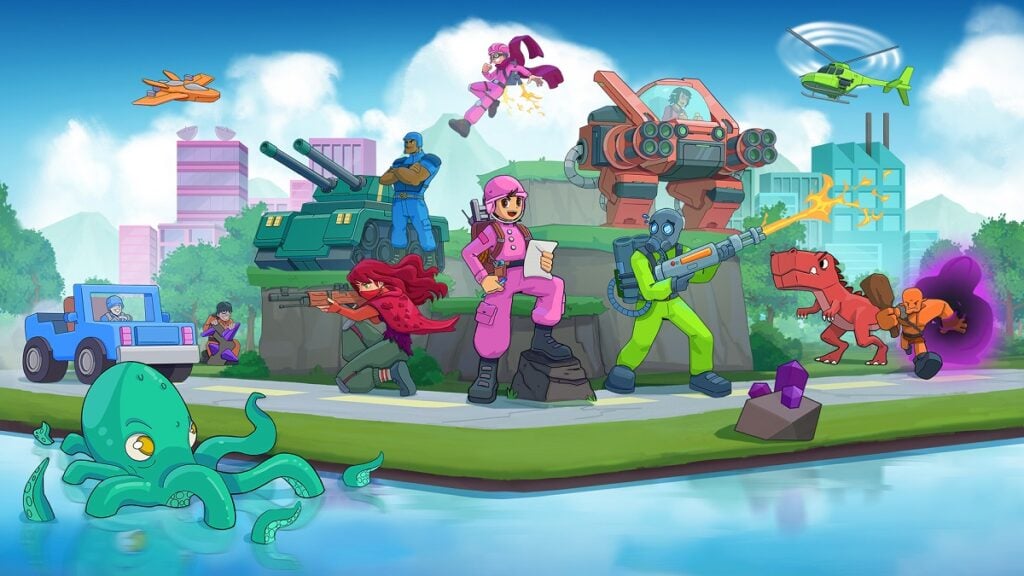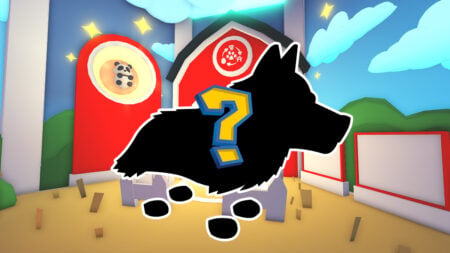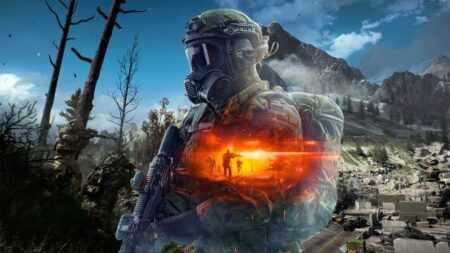Skip To...
With Nintendo and developer Intelligent Systems prioritizing the Fire Emblem franchise over the lesser-known Advance Wars tactics games, several indie developers have taken up the mantle, with titles like Wargroove and Tiny Metal picking up where things left off. This year alone, a few new contenders have entered the indie tactics arena, with Athena Crisis being the newest recruit to make its way to the battlefield after a stint at Early Access Academy.
At first glance, Athena Crisis could easily be mistaken for an Advance Wars clone, complete with color-coded factions and an easy-to-digest art style that favors pixel art and sprites as opposed to higher-res artwork. Admittedly, its familiar look (and my hubris) got the better of me; I immediately jumped into a few online matches and campaign levels, thinking that I’d be in my element after clocking dozens and dozens of hours on Advance Wars: Dual Strike. Needless to say, it didn’t take too long for me to realize that Athena Crisis has made a smattering of changes to an already-established formula, which are sure to throw a few veteran Advance Wars players for a loop.
A Clash of Units
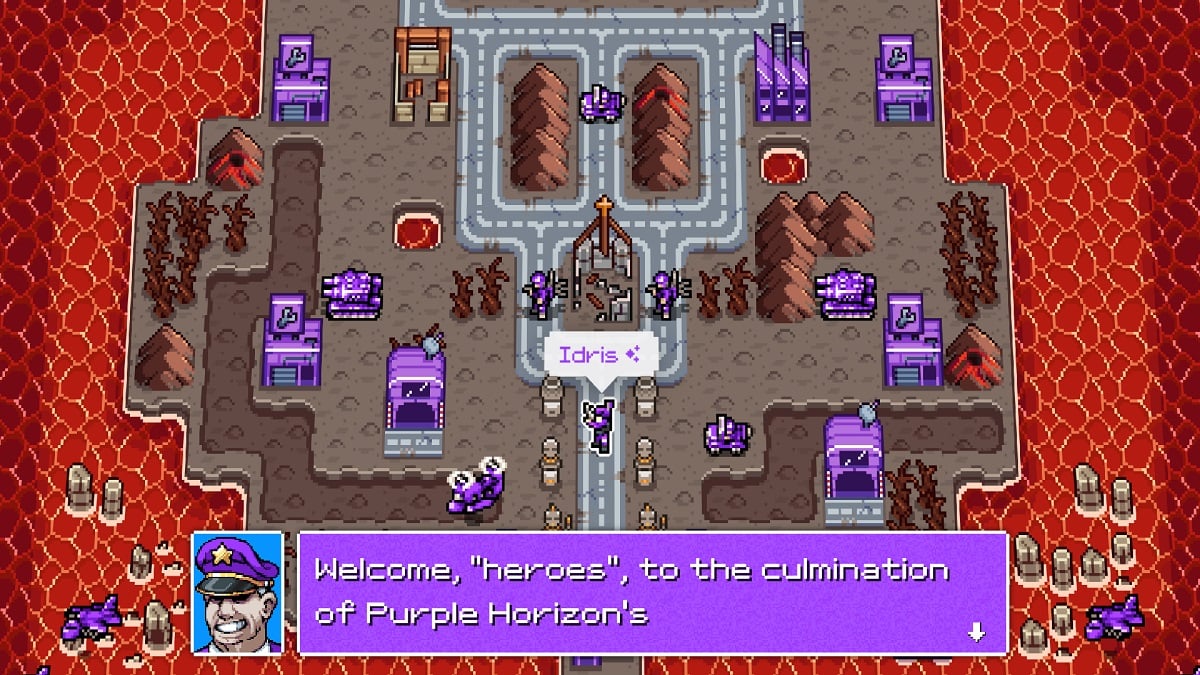
To be clear, the core gameplay loop that we’ve come to know and love has been, generally speaking, faithfully recreated. During each skirmish, you’ll commandeer your army, building units, capturing enemy properties, and attempting to whittle down the enemy’s forces while making sure your troops aren’t wiped out first. Different unit types have their own strengths and weaknesses, and it takes some careful planning to make the best use of what resources you have available to you. Some units might excel against vehicles, others might have limited movement but can dole out more damage, and there are a dozen or so different variables and environmental factors to weigh and consider: terrain type, attack range, and (for those playing with Fog of War enabled) visibility, to name a few.
Athena Crisis certainly takes inspiration from the franchises that laid the groundwork in the tactics genre, but developer Nakazawa Tech has not shied away from completely rewriting large swaths of the Advance Wars bible, often for the better. Were you always disappointed that Advance Wars only offered up two types of infantry units? Not to worry; Athena Crisis has expanded the roster with the likes of pioneers (that can create buildings and railway tracks but have no offensive capabilities), saboteurs (who focus on sabotaging enemy vehicles and stealing supplies), and flamethrower infantry, that can decimate other soldiers with ease.
It doesn’t end there though. In other tactics games, controlling properties around the maps brought in additional resources each turn, and let you heal your units. In Athena Crisis, you’ll instead need to rely on medics to heal your infantry. If you prefer indirect fire, you’ll have a few different types of artillery units at your disposal, but you can also double down on snipers, long-range shooters that function much in the same way — they can’t attack and move on the same turn, but like their vehicular counterparts, you can pick off units from a distance without needing to worry about being counterattacked.
Throwback Visual Style
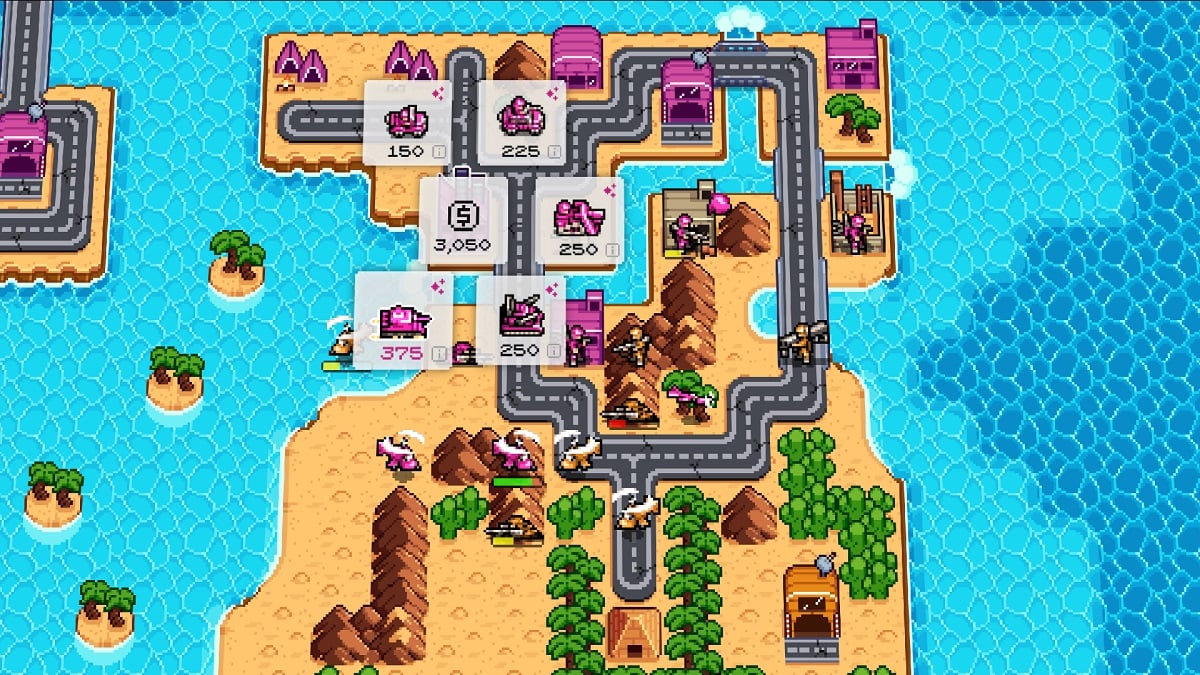
The list of changes to Advance Wars‘ core formula is staggering, to say the least. By my count, there are over 40 different unit types across land, sea, and air, with some sporting unique abilities to set them apart from their contemporaries. There’s a lot to unpack in Athena Crisis, so much so that it can all be a bit overwhelming at times, especially as you try and navigate the game’s UI.
While it’s by no means a dealbreaker, even I can’t deny that menu navigation can be a bit of a chore at times. Athena Crisis shines when played on PC with a mouse, and moving over to my Steam Deck proved to be a bit of a challenge when it came to navigating the various in-game menus. More often than not, I ended up quitting to the main menu when trying to exit the pause screen, and while it’s easy enough to jump back into the map I was playing, I never really felt like I truly understood all of the game’s controls. More bewilderingly, I still can’t find a list of keyboard shortcuts and control layouts for the mouse and keyboard, and I ended up having to play through all of the tutorial missions to get a better sense of how to quickly end my turn or activate special abilities.
In fact, this sort of thing is pretty representative of my biggest gripes with Athena Crisis. In many ways, it feels more like a polished set of tools for creating your own game, rather than a carefully curated experience. And to be fair, neither of these approaches are inherently misguided. The flexible and robust map editor, the cross-progression across multiple platforms, and the focus on customizable online play are sure to be a boon for those who have grown tired of the relatively simple nature of something like Advance Wars by Web. But, for those, like me, who place equal importance on a solid single-player offering, Athena Crisis feels more anemic than it should. Granted, there is an “official” campaign with a loose storyline, but it also feels very much like a fan campaign (and, by definition, it kind of is, seeing as how it’s built using the same tools available to players looking to make their own user-generated content).
Conclusion
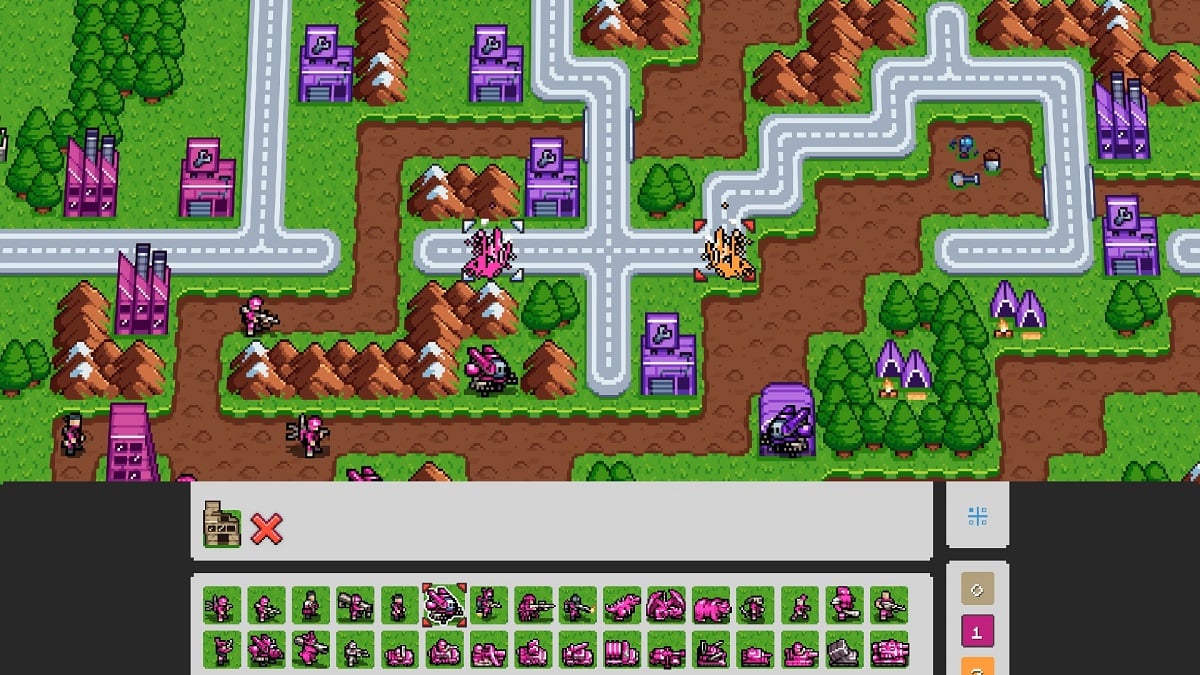
Once I adjusted my expectations and realized that I wasn’t going to be getting a polished single-player campaign complete with a catchy soundtrack, memorable characters, and a thin but enjoyable storyline, Athena Crisis began to grow on me. There’s a lot on offer here, and at times, it almost feels a bit too complex, especially when you’re tasked with trying to remember the strengths and weaknesses of a few dozen unit types. I’m sure diehard tactics fans will dive into Athena Crisis with aplomb. For me, I had to slowly wade into the pool to make sure I didn’t drown.
Review copy given by publisher.
Athena Crisis (Reviewed On PC/Steam Deck)
Athena Crisis is bursting at the seams with new gameplay mechanics and a robust tool set for anyone with a penchant for online play and user-generated content. That being said, who prefer a more polished, curated experience might be left a bit disappointed.
The Good
- In-depth mechanics and varied unit types
- A strong focus on customizable multiplayer
- The potential for years and years of user-generated content
The Bad
- Combat systems and mechanics can be too complex at times
- UI and menu navigation is far too vague and unclear

